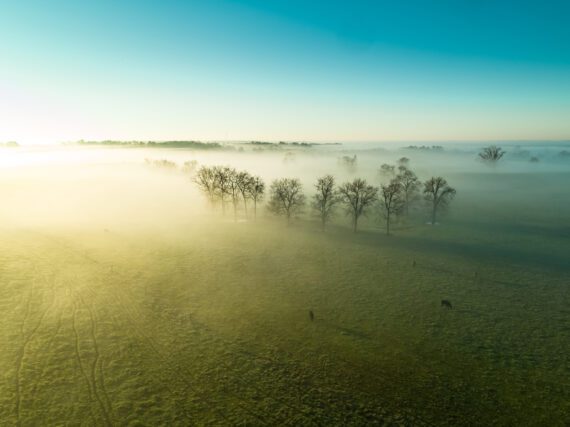By Rev. Dr. Angelique Walker-Smith
Do you not know that you are God’s temple and that God’s Spirit dwells in you? If anyone destroys God’s temple, God will destroy him. For God’s temple is holy, and you are that temple. 1 Corinthians 3:16-17
Recently, I discovered the gravesite of a great-auntie with an older cousin. Her gravesite—like so many gravesites of people of African descent in the Black Belt of Alabama—was hidden. A few days later we visited the family gravesite of my great-great-great-grandmother, also hidden and buried behind the high hedges of a very well-kept white cemetery with many other descendants. I fell to my knees, prayed, and once again gave thanks for my ancestors and for the honor of being their descendent.
Black History Month offers a hallowed time for all of us to give thanks to ancestors like these and to actively engage in solidarity with their legacy, which calls us to faith, love, equity, and hope. It is a time to not only recognize the public and visible leadership of those most often celebrated, but to also recognize those who have been less visible, invisible, and even removed from the memory of yesteryears. Alabama is not the only place where our gravesites are hidden; they are hidden in locations across the nation and around the world.
Stories, individuals, and peoples of Africa and of African descent have been systematically erased from our memories. This erasure includes black lives who did not survive infancy as well as those who gave life. Black lives have been erased from cradle to grave. This lack of memory desanctifies black lives and compromises the history and herstory of all of us.
The proper honoring and remembrances of gravesites and the related narratives of black lives remind us of the policies of enslavement of African peoples, of the Emancipation Proclamation, of the abbreviated period of Reconstruction, and of the congressional reversal of these policies that ushered in the Jim Crow laws. It reminds us of periods when black lives were not properly buried, when they were isolated or even bulldozed over to benefit those who took black farmlands and built their homes atop black lives. This legacy informs the system of racism today. Please see more policy lessons here.
The acts of honoring and remembering helps to avoid repeating past horrors like these and encourages a more sanctified way forward as cited in 1 Corinthians 3:16-17. This remembrance also recognizes the hope these ancestors foresaw for their children. Today, their descendants are reclaiming the meta-narratives and common narratives of and by people of Africa and African descent. We ask, “Who do you know who can tell ancestral and descendent stories?”
Students from our Historically Black Colleges and Universities (HBCUs) and related sanctuaries will be sharing their voices during our Black History Month observance at Bread for the World. This month, Bread will also be convening leaders from Black farming communities, addressing the upcoming farm bill while celebrating the sanctity of black lives. We invite you to join us as we remember and honor black lives, as we advocate together to end hunger.
Angelique Walker-Smith is senior associate for Pan African and Orthodox Church engagement at Bread for the World.



